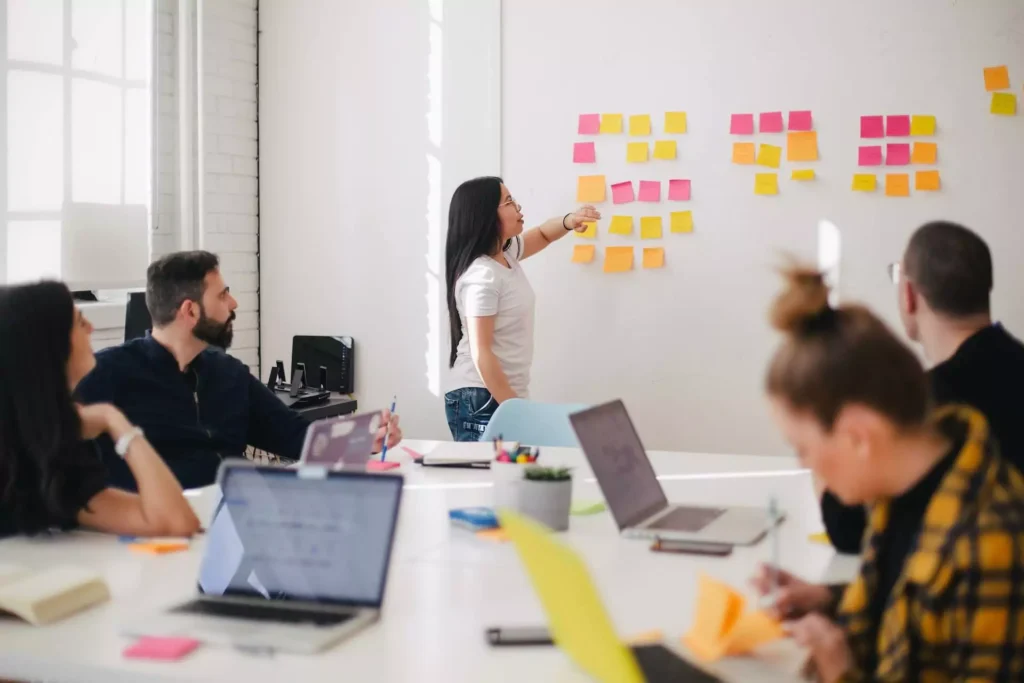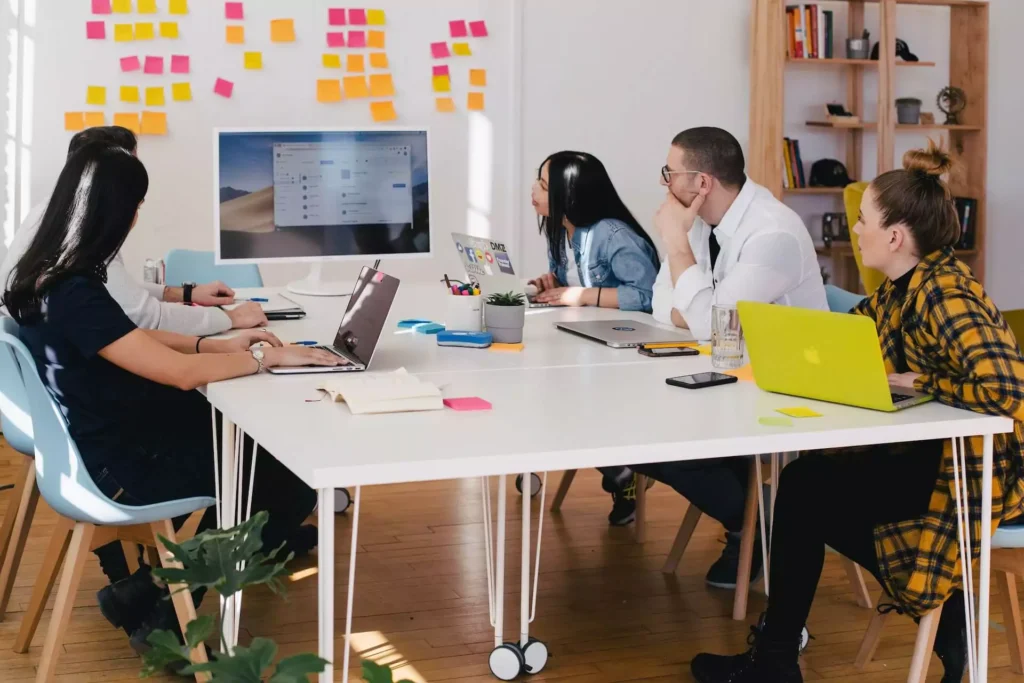Sometimes it can feel easier to work on your own. It can be helpful; you can work on the job whenever you want and keep track of everything.
There are, however, some good reasons to work in a group. Group work can be a great way to learn and understand things better, whether it’s something your instructor or supervisor makes you do or a study group you organise with your friends.
Table of Contents
1. You get different points of view

Working in a group lets you look at things from the points of view of other people. When you have to talk about a topic and figure out how to deal with it, you must listen to what others say. Then, their ideas will change your thinking and help you see more. Not only are the people in your group your fellow students, but they are also your teachers.
The point of group work is that being around other people makes learning much more accessible. You have to hear what other people say and compare, contrast, and incorporate their ideas into your own. Hearing what someone else thinks will change your mind or show you where your ideas are weak. Your views can only change if you talk to other people.
The point is not just to change your point of view but also to make it more transparent. You don’t want to change the minds of your team members. They are working with you on a project where you are all trying to develop a shared understanding of a topic. As a result of working together, the group’s final, shared view is sharper, fuller, and more dynamic. Group work is a great way to sharpen your thoughts and improve your critical thinking skills.
So, the next time you work with a group, remember to listen to what other people say and think about how their ideas can help you improve your own. Remember that your point of view is flexible and should change based on what you learn. By the time the group process ends, you’ll be more intelligent and wiser than when you started.
You can read the top 10 time management tips for Students Here.
2. You get more thoughtful about words
Most people agree that interacting with others is the best way to learn a second language. Teachers of English will often talk about “situated learning.” This is when a person teaching English is put in a social setting and has to speak to others in English to get along. This job aims to show the learner how language works in real life.
You might not know it, but it’s the same for you in every group project. Even if English is your first language, you learn how other people talk about a subject better when you have to speak to them. You’ll learn words and phrases that work well to explain something, and you’ll learn to eliminate words and phrases that don’t help you get your point across.
By the end of group work, you can explain ideas differently. You could also use new words and sentences when discussing a subject. Consider if, after a group project, you presented the topic to a lesson or instructor and started using phrases and words you would never have thought of before working in a group. Your teacher will be happy with how much you’ve discovered, which will help you get better grades.
3. You find out how to teach

Sometimes you know more than the others in the group, and this can only be pleasant if you think about it correctly. But being the most intelligent person in a group means you will learn a lot from working with others.
If you want to be the teacher in a group, you must keep learning. Even if you think you know everything to see, you will still need to organise your information well enough to teach it in a way that people can understand.
If you want to teach your classmates something, you will need to break it down into steps that are easy to understand. Jerome Bruner used the word “scaffolding” to describe how a teacher breaks up information into small pieces that are easy to understand. You will keep giving the learner little bits of information until they have enough to understand a subject on their own entirely.
So, even if you know more than the other people on your team, you’ll still learn a lot from group work. It will help you learn more about a subject and make you an even bigger expert than you were before.
4. You learn how to deal with different people.
Group work is often overlooked because you must work with people you might not get along with, and This might not be just because of how different you are as people. You may also have other ways you like to learn. If one person in the group is quiet, bookish, and shy, and another is loud and talkative, their ways of learning might need to be revised. This can make things difficult for a group.
The way out of this problem is to change the way you think. If you’re in a group with people who don’t get along, think of the group learning setting as a chance to learn how to deal with people in real life. It’s an essential skill for getting along with others at work, but it’s also important in real life: most families have different styles at Thanksgiving dinner.
When you take charge of a group project and find a way through different types, you become a much better people person. One way to deal with this problem could be for team roles to change over time.
Roles on a team include taking notes, keeping track of time, looking for resources, and coordinating. The note-taker makes sure that everything that is said is written down. The person who keeps track of time ensures the group stays on task and completes everything on time. The resource investigator uses the internet and library to find more information for the team. The coordinator makes sure that everyone’s opinion is heard. Every time the group gets together, try to switch these roles.
5. You can leverage skill

We often find we have different skill sets from our friends. We might even have different ways of learning! Working in a group can be very helpful because everyone has other skills.
You can improve yourself by working with people on your team who are better at some jobs than you are. The person on the team who is good at creating creative ways to put together group presentations can tell the whole group how to improve the end product. The person on the team who is good at research can help the group gather information to help the group’s goal.
Remember that your goal shouldn’t be to give creative tasks to creative people and study tasks to research experts. Your goal should be to have the best people in the group show other people how to get better at what they’re good at.
If you use group work to watch and learn from the skills of others, you’ll end up with better skills than if you worked alone. Please take advantage of the chance to learn from your peers, see what they’re good at, and pick up some of their techniques. Keep an eye out for these chances to learn from your bright team members, whether it’s a new study method or tips on being a better public speaker.
6. You learn how to make deals

One of the most annoying things about working in a group is that the result is only sometimes what I want. If you’re a perfectionist, it’s hard to see ideas and points of view in the final group assessment that you think could be better.
But this is a good thing about group work that is built right into the process. You share ownership when you include someone else’s thoughts in a project you are working on together. The group needs to see some of themselves in the final result.
“Positive interdependence” means that people work together and help each other. Positive dependency is a way of saying that everyone in the group either sinks or swims together. If your group members’ ideas are separate from the talk, they won’t be as motivated, and you’ll notice that they start to put in less effort. In the long run, this will hurt the group. So, ensuring that your peers feel they have some say in the group talk is helpful. This ensures the group stays together and stays motivated to learn in the long run.
Negotiating and making deals are essential parts of life. A group project shouldn’t be about getting your way. Putting the group first teaches you something: it teaches you how important it is to be part of a community, to count on each other, and to be tolerant. These ideals are the soft emotional intelligence skills that will make you a better listener, colleague, and student.
One Last Thing
Even if group work gives you bad dreams, try to think about the good things about it. It is a great way to learn and come up with new goods. This is why group work situations are every day in schools and businesses. Influential groups help you make better goods and learn more, and they also teach you soft skills and emotional intelligence that will be useful for the rest of your life.
Next time you’re in a group situation, think about how your group can help you learn and grow:
- You get different points of view.
- Your vocabulary grows.
- You become a teacher.
- You learn how to deal with different people.
- You can leverage skills.
- You know how to make deals.
